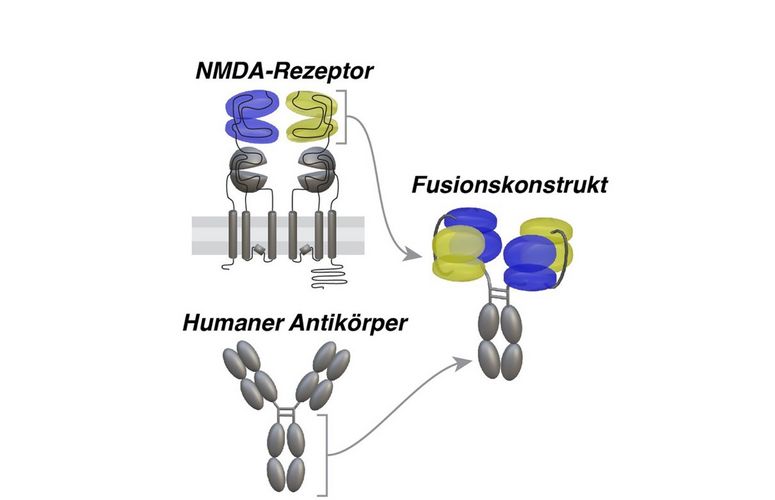In anti-NMDA receptor encephalitis, antibodies interfere with signal transmission in the brain. The receptors which the neurotransmitters glutamate and glycine bind to are internalised by the cells through antibody binding. This causes reduced signal transmission to neurons in the central nervous system. Those affected experience a wide variety of symptoms from epileptic seizures and psychoses such as hallucinations to loss of consciousness and coma. Patients describe the disease symptoms to be like a “fire in the brain” that they can’t control. The interdisciplinary DFG research unit SYNABS, consisting of researchers from several locations, is dedicated to the study of this disease.
“It is our goal to better understand the disease mechanisms and to develop new and target-specific therapeutic approaches using modern biotechnology,” said the group’s spokesperson, Professor Christian Geis from Jena University Hospital. With their translational research approach, the group has been able to discover a potential therapeutic agent. The molecule consists of a part of an NMDA receptor and a fragment of a human antibody. The pathogenic antibodies then bind to this fusion construct rather than to the NMDA receptors.
“To investigate whether the newly developed molecule can neutralise the antibodies, we used biochemical and microscopic methods on cultured nerve cells from mice and humans,” said Toni Kirmann, a doctoral researcher who is part of the SYNABS consortium in the Faculty of Medicine at Leipzig University. “We plan to try to apply this therapeutic approach to other forms of autoimmune encephalitis. In the long term, we hope that basic neuroscience research will help improve treatment options in neurology and psychiatry,” said Professor Stefan Hallermann of the Carl Ludwig Institute of Physiology in the Faculty of Medicine at Leipzig University.
In this project, the TU Braunschweig developed the fusion construct and analysed it biochemically. The partners at Jena University Hospital and the Faculty of Medicine at Leipzig University initiated the DFG research unit and have analysed neurons and conducted in vivo studies. The partners at Charité and Freie Universität in Berlin have identified the affected autoimmune antibodies in patients.
Original publication in “Brain”:
NMDA-receptor-Fc-fusion constructs neutralize anti-NMDA receptor antibodies
DOI: https://doi.org/10.1093/brain/awac497





























































